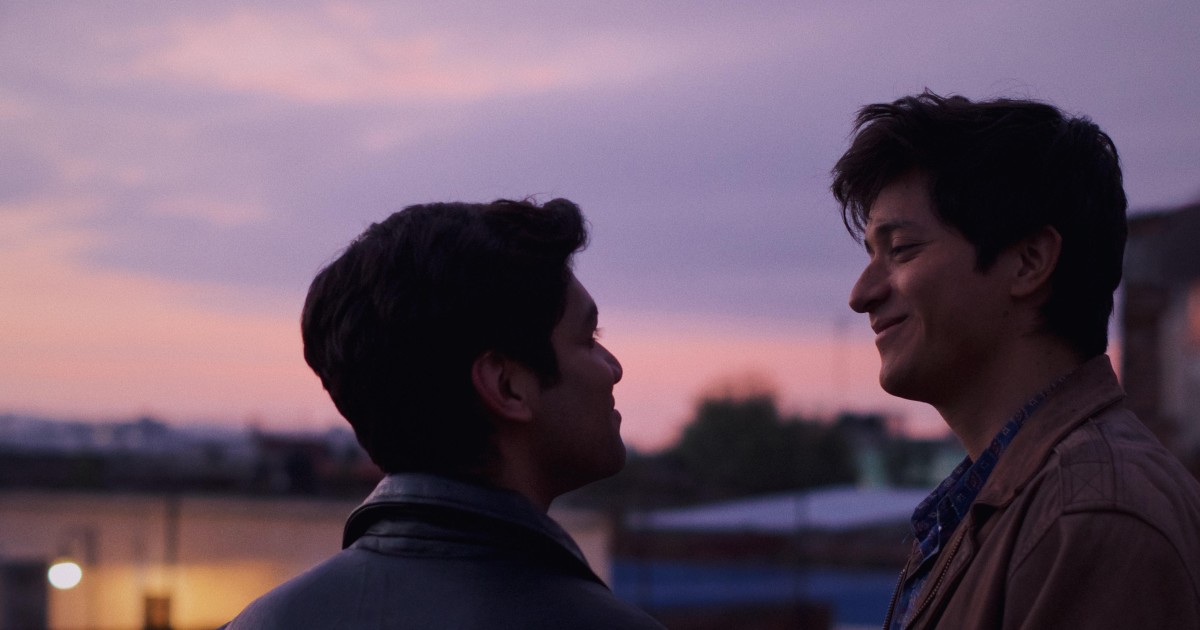The Times is committed to reviewing theatrical film releases during the COVID-19 pandemic.
But one of the sad ironies of “I Carry You With Me,” Heidi Ewing’s emotionally direct, formally complicated new movie, is that in attempting the dangerous journey across the border, Iván and Gerardo would effectively be exchanging one form of persecution for another.
A time-shifting, form-blurring romance that spans two countries and as many decades, “I Carry You With Me” means to peer behind those masks, to lay bare the unvarnished inner truth of Iván and Gerardo’s life together and apart.
The issues at stake here — the perils of migration, the persecution of undocumented immigrants and sexual minorities — are hardly unique to Iván and Gerardo, but as Ewing reasonably intuits, they might well be the ones best equipped to address them here.
In the first two acts, largely set in mid-’90s Mexico, we follow their younger counterparts — beautifully played by Espitia and Vázquez — as they enact a tender, touching forbidden romance.
She throws in flashbacks to Ivan’s and Gerardo’s very different childhood experiences of ingrained homophobia, moments that are almost evocative enough in their details — a bright yellow quinceañera dress, a dark night on a family farm — to make you overlook the tidiness of the contrast.
As he begins the harrowing trek north with his friend Sandra , “I Carry You With Me” shifts registers from wistful romantic melodrama to tense border-crossing thriller, then leaps ahead to find Iván, Sandra and others sharing a cramped apartment.
It’s a daring gambit if not an entirely successful one, partly because of the wobbly physical resemblance between the two sets of leads but mainly because two decades — full of their own struggles and hard-won triumphs, including Gerardo’s decision to join Iván in the States — seem to have fallen by the narrative wayside.
It literalizes the chasm — cultural, geographic, emotional — between the lives Iván and Gerardo are leading in the present and the lives they sacrificed to make that present possible.
Increasingly dreamlike in its swirl of associations and images, “I Carry You With Me” becomes a bittersweet ode to restlessness, a fractured evocation of lives and identities that have been uprooted and torn apart many times over.
